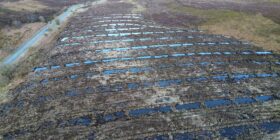Slow recovery of cancer detection rates for some types of cancer, new report finds

Cancer detection rates across Wales are recovering more slowly for some cancers than others.
That is according to a new analysis of pathology samples by the Wales Cancer Intelligence and Surveillance Unit (WCISU) at Public Health Wales.
Waiting times for a cancer diagnosis have worsened since the coronavirus pandemic, with performance targets across Wales reaching their worst on record in June.
Just 53.4 per cent of people with cancer started their treatment on time – leaving over 870 people to face delays in their treatment during just one month alone.
Leading cancer charity Macmillan is also warning that people with certain forms of cancer are not receiving equal access to timely treatment, and that cancer treatment waiting times performance for those cancers remains worryingly low.
The latest data shows that as few as 1 in 4 people with gynaecological cancer received their treatment on time during June – with nearly three quarters of people affected being left to face anxious delays in their care.
According to PHW detection of prostate cancer was nearly 20 per cent lower in 2022 than in 2019, and lung cancer was nearly five per cent lower in the same period.
This official statistics release by the Wales Cancer Intelligence and Surveillance Unit (WCISU) at Public Health Wales is the first time that pathology samples have been used to assess the picture of cancer detection across Wales, and it allows for a more timely and up to date estimate of cancer incidence across Wales.
The data also show that other cancers are recovering steadily, with identification rates of breast and bowel cancers up 5.2 per cent and 2.8 per cent respectively between 2019 and 2022.
The pathology analysis shows that by 2022 the overall cancer diagnosis rate had largely recovered to pre-pandemic levels, with only 0.4 per cent fewer cancers detected than in 2019.
Professor Dyfed Wyn Huws, Director of the Wales Cancer Intelligence and Surveillance Unit at Public Health Wales, said: “This analysis shows the ongoing impact of the pandemic on the detection of cancers in Wales.
“This first ever release of cancer statistics from pathology samples shows that the recovery from the pandemic numbers still varies across the different cancers.
“It is encouraging that breast and bowel cancers are showing improvements in levels of detection, but clearly challenges remain in detection rates for other cancers.
“Monthly pathology data also suggests that the overall cancer detection rate in the first half of 2023 has remained about the same as the same period in 2022.
“I am pleased that we have been able to implement collation of data from pathology samples, which will provide us with more timely and up to date information.
“The new release of statistics will be shown on the online cancer reporting tool, which was launched earlier this year, available on the PHW website.”
Spotted something? Got a story? Email [email protected]












